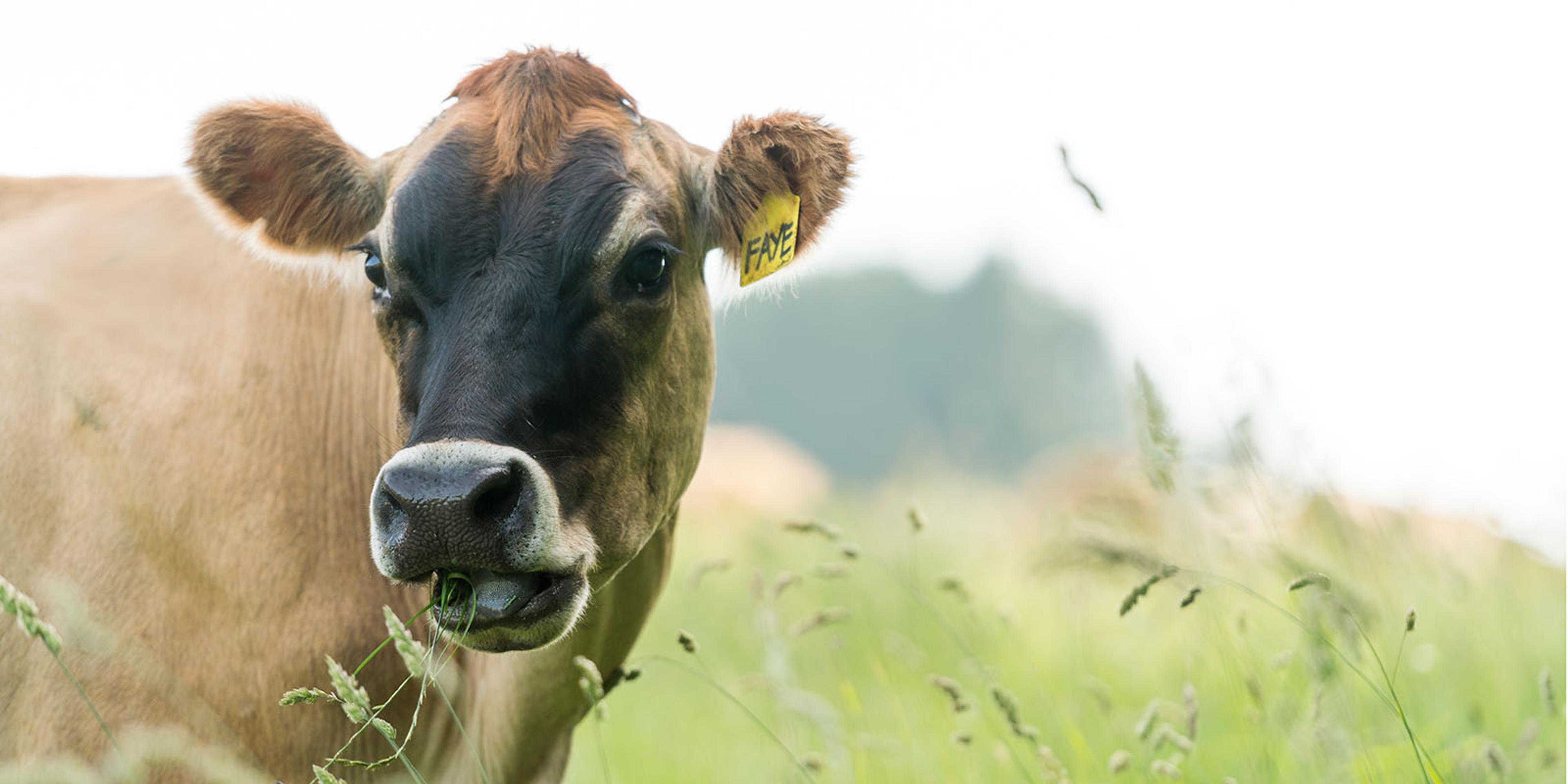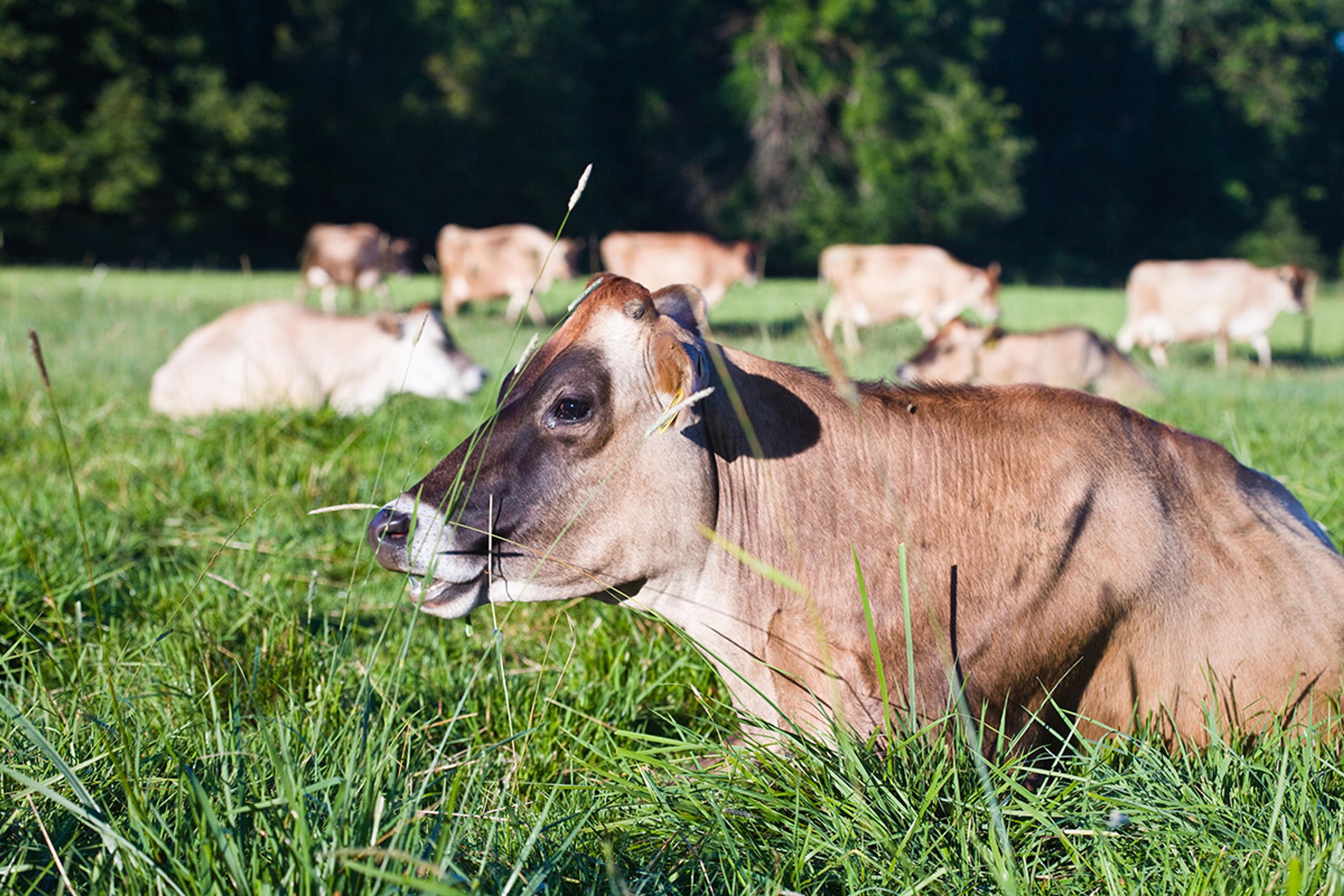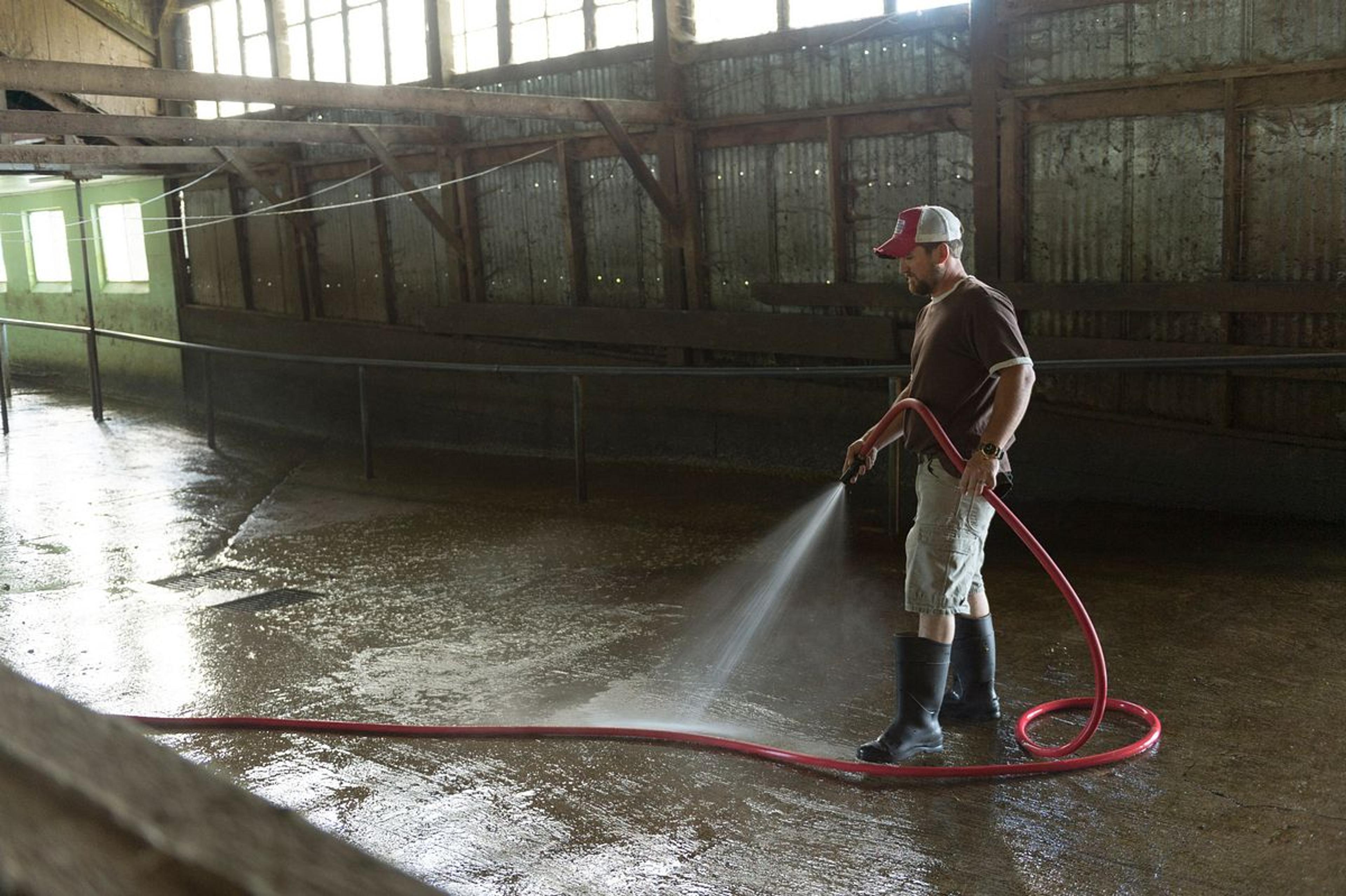
Farming
Quirky Things We Do to Care for Our Cows
The oodles of photos showing Organic Valley farmers hugging their cows and getting cow kisses are just a glimpse of how much we love our cows! But how we show our love goes far beyond ear scratching and cow cuddling. We treat them with the utmost respect, and the affection (and high-quality milk!) they return is notable. Here are some of the quirkier things Organic Valley farmers do to keep their cows happy!

A look at the Miller family's organic dairy farm in New York.
Chiropractic Care and Cows
Touch is an important part of healing, and that’s important to our farmers. Some farmers rely on the special touch animal chiropractors provide to relieve pain related to calving. No farmer wants a cow to be in pain longer than necessary.
Organic Valley farmer Jordan Settlage said it was amazing the first time he saw a chiropractor adjust a cow that was having trouble after giving birth.
“You can see the muscles come back to life. You wouldn’t have known later what shape she was in,” the Ohio farmer said. Now, he keeps the chiropractor’s contact information at the ready in case he needs it.
Like for people, adjustments relax and loosen a cow’s muscles and joints, and while we cannot read a cow’s mind, some of our farmers have worked with livestock long enough that they can tell the cows appreciate it just by observing their body language before and after treatment.
Animal chiropractors also tend to take a holistic approach to healing, which many organic farmers value in their cow care regimen.

Ranck Farm in Pennsylvania
Her Favorite Watering Hole
Cows have different preferences when it comes to drinking water, so we give them options. Farmers provide cold water to quench their gals’ thirst, but many cows prefer drinking water that is closer to their body temperature — about 101.5 F — and they will usually choose warmer water over cool, if available.
Some farmers use a precooler to drop the temperature of fresh milk before it goes into the bulk milk storage tank. Cold water absorbs the heat from the milk through separate pipelines. The water that comes out is warm and can be piped to the watering trough for cows to enjoy. (This is also a great way to save energy, cool milk fast and keep milk quality high!)
Not all cows have the same cravings. Farmers provide plenty of water, but some bovines prefer a frozen beverage — they’ve been known to eat clean, fluffy snow even if there are other options. If it makes them happy, why not?

Webb Farm in Vermont
I Think We Will Name You … Awesome
One Organic Valley farmer from Wisconsin said naming calves is one of her family’s favorite things to do. Some farmers choose names that reflect personality or traits. Their calves are all different and special. Thus, their names must be special.
While looking over a list of cows’ names on organic farms, we discovered there are distinct categories cow names fall into. There is a plethora of plant names like Fern, Tulip, Pansy and Sage, and celestial and atmospheric names like Snowflake, Shine, Rainbow and Midnight. Farmers also lean toward color names like Red, Blue and Blackie.
Tasty treats are also popular name choices: Candy, Brownie, S’mores, Tootsie Roll, Muffin and Butter Pecan. Dallas, Maine and Michigan are on the list of location names, and traditional names like Andy, Dorothy, Vicki, Jenny and Wendy are common. Some names only make sense to the farmers who care for them, like Twisty, Doodle, Dimple, Detour, Magic and Awesome. And of course, there are the ever-popular Bossy and Bessie.
Bringing the Band to the Barn
Music brings people together, and music can bring cows and people together, too. Cows are curious creatures. Talk to a cow, and you will get noticed. She may cautiously walk your way, and once comfortable, she’ll give you her full attention and maybe even a big lick.
Sing to a cow and she may stare, slowly moving her head side to side, wondering what you are up to. Play a saxophone in your field and the cows may run your way to see what is going on. Or play some relaxing music in the barn during milking and you will have calm, satisfied cows.
Our cows spend lots of time outdoors, and the music they hear is from birds, the breeze and all the sounds nature provides. But when it’s time to head inside, many of our farmers play music in their barns for their cows’ listening pleasure. A study found that cows who listen to relaxing music produce more milk. But don’t try to get farmers to agree on what music cows like best. Jazz, country, classical, easy listening — it’s a never-ending debate. We like to think Organic Valley farmers know the best set list to keep all beings on their farms relaxed and content.

Bansen Farm in Oregon
Waterbeds and Beaches for Bessie and Friends
When not on pasture eating a salad bar of fresh greens, you may find some Organic Valley cows lounging at the beach — well, sort of. Some Organic Valley farmers provide sand instead of traditional bedding for their cows to rest on when in the barn.
Some claim sand is more comfortable and offers a number of health benefits, like reduced risks of knee injuries and infections. Sand may be harder for farmers to work with, but one said, “I’m OK with that because it’s for our girls (cows).”
You may also find Organic Valley cows hanging out on their waterbeds. Yep! A waterbed creates a nice cushion for cows’ joints, helping to prevent injury from pressure points. The soft beds also help prevent infections in cows’ udders.
Of course, cows also enjoy the comfort of cozy straw and can be found clean and happy at the end of the day unwinding in a cushy pile of fresh straw.

The McMahan family in Washington keeps its barn and milking parlor nice and clean for the cows.
Shoo, fly! Don't Bother My Dairy
Farmers put a lot of time and thought into designing barns for cattle comfort. They consider the direction the barn is built, how well water will drain from it, wind direction, where sunlight will hit and more. Fans are strategically placed for the best air flow.
Farmers also don’t want pesky flies bothering their herds. Enter the fly vacuum. These contraptions can be placed on the path cows pass through as they come back from pasture on their way to get milked. As cows walk through single file, air blows the flies off the cows, and a vacuum collects them in a removable bag. Sometimes the cows appreciate the flow of air inside the vacuum so much that they need a nudge from behind to keep moving! Fly vacuums dramatically decrease the number of flies on a farm and increase cow comfort.
Another way to keep flies under control is by releasing parasitic wasps around fly-breeding areas. Some Organic Valley farmers who have used parasitic wasps for many years report that their farms’ fly populations are nearly nonexistent. These wasps don’t bother the cows or people!
Birds also provide excellent fly control. Farmers encourage birds like swallows, purple martins and bluebirds by building birdhouses and providing attractive nesting areas.
Lining Up to Get Brushed
It may take a bit for her to figure out, but once a cow learns how to start a rotating cow brush, it can be hard to get them to stop. These large, bristly, rotating brushes may look like something you’d see in a car wash, but boy, do the bovines love them. The brushes are about 3 feet long, and when a cow pushes on it, it spins. The brushes clean her coat and shoo away flies while giving her a satisfying massage.
One Organic Valley farmer said that within a few hours of installing the brush, four or five cows stepped up for a pleasurable experience. Soon there were 10 cows in line!
Their reactions are kind of like when you scratch a dog — you just know they enjoy it.
We Love Our Animals
Cows that live on Organic Valley farms are given comfortable quarters, a high-quality grass-based diet and plenty of room to be themselves. They can be seen enjoying the outdoors while grazing the day away. Our farmers know how to take care of a cow and take pride and joy in doing so.
While cows may not understand when we tell them “thank you for all you provide,” we show our appreciation by helping them live their best lives.
An antique typewriter fanatic and chicken mom who treasures time outdoors admiring all that nature has to offer, Jennifer McBride is Rootstock’s editor. McBride spent 15-plus years as a journalist and newspaper editor before finding her niche with the nation’s leading organic dairy cooperative. Contact her at Rootstock@organicvalley.com.
Related Articles
- Tags:
- animal care,
- farm life


















